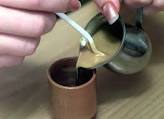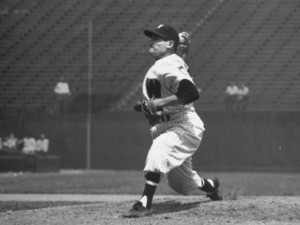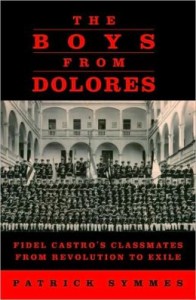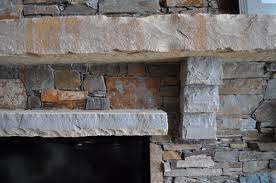 The plant that’s been uprooted has only courage to hold it up
The plant that’s been uprooted has only courage to hold it up
― Marty Rubin
The next morning, Cecilia was awakened by the sound of a rooster crowing somewhere behind the house. She tried turning over and going back to sleep, but the bird was determined that everyone in the neighborhood should be awake and moving. Cecilia pulled herself out of the comfortable bed, and walked into the bathroom to pee and splash some water on her face. She glanced at the mirror, and was somewhat taken aback by what she saw. Within the span of a few days, she seemed to have aged and matured. She thought to herself, “Are all these familial revelations taking their toll on me, or the stress of travel and having to bluff my way around all these hurdles?” With that, she grabbed her hairbrush out of her overnight back, ran it a few times through her light brown hair and went to put on the clothes she wore last night.
When she came down the stairs and turned the corner, Manuel and Abuela were sitting at the dining room table, quietly talking together. Two small cups of cafe con leche were between them. The smell of real  Cuban coffee was almost too much for Cecilia to bear. Abuela glanced up to see Cecilia, and immediately went to fetch another cup of steaming brew. Cecilia sat down, nodded at Manuel and accepted the cup from Abuela. All three sat in silence while Cecilia sipped her coffee and tried to wake up.
Cuban coffee was almost too much for Cecilia to bear. Abuela glanced up to see Cecilia, and immediately went to fetch another cup of steaming brew. Cecilia sat down, nodded at Manuel and accepted the cup from Abuela. All three sat in silence while Cecilia sipped her coffee and tried to wake up.
Manuel got up from the table and took his small cup back into the kitchen. Cecilia heard the back door open and quietly close. She was unsure how to proceed. Without Father Teodor to translate, she wondered, how were she and Abuela going to be able to understand one another? How was she going to find out the rest of the story? A half-minute later, Manuel returned, handing a fresh  papaya to Abuela. She went into the kitchen, and within five minutes, had turned the fresh papaya, some mango and the home-baked bread left over from dinner into a delightful breakfast. Again Cecilia thanked the old woman for her hospitality. She struggled to find the words in Spanish to ask her to explain what happened next to her grandfather, but could not put a satisfactory phrase together in her head. Just then Manuel spoke. “Cecilia, I am Abuela’s grandson, and therefore I suppose I am your brother, or como se dice hermanastro?” Cecilia thought for a moment and almost instinctively replied “Stepbrother?” Manuel nodded. “I learned to speak English in school, but without much opportunity to practice, my…vocabulario .. um .. isn’t so good.” Cecilia smiled and said “We’ll manage.” Manuel nodded, and both Cecilia and he looked expectantly at Abuela. For an instant, Cecilia wondered how much Manuel knew about his grandfather’s fate, but Abuela began to speak and the notion was put aside.
papaya to Abuela. She went into the kitchen, and within five minutes, had turned the fresh papaya, some mango and the home-baked bread left over from dinner into a delightful breakfast. Again Cecilia thanked the old woman for her hospitality. She struggled to find the words in Spanish to ask her to explain what happened next to her grandfather, but could not put a satisfactory phrase together in her head. Just then Manuel spoke. “Cecilia, I am Abuela’s grandson, and therefore I suppose I am your brother, or como se dice hermanastro?” Cecilia thought for a moment and almost instinctively replied “Stepbrother?” Manuel nodded. “I learned to speak English in school, but without much opportunity to practice, my…vocabulario .. um .. isn’t so good.” Cecilia smiled and said “We’ll manage.” Manuel nodded, and both Cecilia and he looked expectantly at Abuela. For an instant, Cecilia wondered how much Manuel knew about his grandfather’s fate, but Abuela began to speak and the notion was put aside.
Abuela began to speak rapidly in Spanish, looking intently at Manuel. “Lentamente, Abuela, lentamente, por favor.” Abuela smiled, nodded and began again, this time more slowly but with that same, careful enunciation Cecilia had come to associate with the old woman. Manuel then began his translation. “The morning after our … togetherness..” it was obvious Manuel was searching for the word to describe the lovers’ tryst in an acceptable English word. “The morning after our togetherness, we were so afraid that your grandfather’s presence would be noted by the informers in our village. We were at a loss as to what to do, when Dios, a God – gave us salvación. Manuel paused and looked expectantly at Cecilia, to ensure she understood. She nodded, realizing that the Spanish word for salvation sounded very much like the English. Abuela and Manuel continued. “When Javier Vasquez’s father killed him, we knew that was the way to save your grandfather.”
This confused both Cecilia and Manuel. Both of them looked at Abuela, who returned their gaze. Cecilia said to Manuel, “Why don’t we ask Father Teodor to join us?The young man quickly agreed, apparently realizing he was not well-versed enough in English to effectively translate Abuela’s words. Manuel left to go fetch Father Teodor. While they waited, Cecilia and Abuela cleared the table and washed the cups and saucers. Ten minutes later, the priest returned with Manuel, giving both Cecilia and Abuela light hugs and then sniffing the air. Abuela smiled, and went for the coffee pot on the stove. Two minutes later, they were all seated back at the dining room table. They gave the priest a few minutes to savor his coffee. He asked Cecilia, “where do we pick up the story?” Cecilia and Manuel replied simultaneously, “at the murder of Javier Vasquez!” The priest chuckled softly, and turned to Abuela. He said some quick Spanish words, and she nodded. Father Teodor said, “Perhaps it would be easier for me to explain what Abuela Cecilia is trying to say.
There was a young man who came from Oriente province and was just about the same age as your grandfather, and a few years’ older than Abuela Cecilia. His name was Javier Vasquez. From what I understand, the young man was always a baseball fanatic. His hero was  Connie Marrero, a pitcher who played for the Washington Senators in 1950. Cecilia spontaneously interrupted Father Teodor. “Oh, I read about him a few weeks ago – in the New York Times! I believe he just died.” Father Teodor nodded. Yes, he was nearly 103 when he died. There was a pause, while Cecilia struggled to recall a few details of what she knew of him. “As I recall, he was a pitcher, and his specialty was throwing the off-speed breaking ball. Yes, I recall my grandfather speaking of how he was so admired in Cuba!” Father Teodor continued. “Javier not only admired him, but Connie showed him how to deliver that pitch. He perfected his skills at the Dolores school in Oriente run by the Jesuits. It was attended by the sons of wealthy local businessmen and landowners, and Javier had a full scholarship. At Dolores, he met a rebellious fellow three years younger than he named
Connie Marrero, a pitcher who played for the Washington Senators in 1950. Cecilia spontaneously interrupted Father Teodor. “Oh, I read about him a few weeks ago – in the New York Times! I believe he just died.” Father Teodor nodded. Yes, he was nearly 103 when he died. There was a pause, while Cecilia struggled to recall a few details of what she knew of him. “As I recall, he was a pitcher, and his specialty was throwing the off-speed breaking ball. Yes, I recall my grandfather speaking of how he was so admired in Cuba!” Father Teodor continued. “Javier not only admired him, but Connie showed him how to deliver that pitch. He perfected his skills at the Dolores school in Oriente run by the Jesuits. It was attended by the sons of wealthy local businessmen and landowners, and Javier had a full scholarship. At Dolores, he met a rebellious fellow three years younger than he named  Fidel Castro. Fidel and he were the stars of the baseball team: Fidel for his batting and Javier for his pitching. Two years at Dolores allowed him to perfect his pitching technique. It made Javier a standout, so much so that when Fidel transferred to Belén in Havana to finish high school, Javier was also offered a full scholarship and went with him.”
Fidel Castro. Fidel and he were the stars of the baseball team: Fidel for his batting and Javier for his pitching. Two years at Dolores allowed him to perfect his pitching technique. It made Javier a standout, so much so that when Fidel transferred to Belén in Havana to finish high school, Javier was also offered a full scholarship and went with him.”
Father Teodor paused to sip his now-cool cafe con leche. “Later, while Fidel was creating his army in the Sierra Maestra mountains, Javier was playing semi-professional baseball, both in Cuba and in Miami. Everyone knew he was going to make it to the big leagues someday. But Javier and Fidel stayed in touch, sharing both a love of baseball and a love of revolutionary politics. Before Fidel ever took over the government, he had great plans for Cuba, plans that were known only to a few close confidants. One part of that plan involved his interest in nuclear weaponry. Fidel knew that as soon as he revealed his Communist ideology, the United States would try to overthrow him immediately. His idea was that Cuba should become the nuclear satellite of Russia, a mere 90 miles from the U.S. He was convinced that a nuclear threat was the only way to dissuade the US from attacking. But in order to implement his plan, he needed someone he could trust to go to Russia and learn everything about this new thing called the  atom. In that way, Fidel would have his own man explaining the technology to him and managing his relationship with the Soviet Union. Fidel needed someone he could implicitly trust, who was intelligent and politically reliable. He chose Javier Vasquez.
atom. In that way, Fidel would have his own man explaining the technology to him and managing his relationship with the Soviet Union. Fidel needed someone he could implicitly trust, who was intelligent and politically reliable. He chose Javier Vasquez.
Father Teodor paused again to collect his thoughts. “The young man was so excited to be picked by Fidel for this important assignment. He went home to Oriente, to explain his new calling to his parents, and to get some belongings before he was to depart. But when Javier told his father what Fidel had arranged for him, his father was furious! His father knew Javier was throwing away a lucrative career in baseball to follow someone who was never going to succeed in overthrowing Batista! They had a violent argument, witnessed by Javier’s mother. She said Javier’s father pushed Javier out of frustration and anger. Javier fell back, and his head hit with full force against the  stone fireplace mantle. Javier slumped to the ground. Within a few moments, before she or his father could do anything, he was dead.
stone fireplace mantle. Javier slumped to the ground. Within a few moments, before she or his father could do anything, he was dead.
Javier’s mother was terrified. First and foremost, she was afraid of Javier’s father and his legendary bad temper. Here her son is dead, her son with a passport and instructions written by Fidel in his pocket, ready to travel to Russia. She knew that if she contacted the local police, both she and her husband would be sent to prison, for murder and for their son’s politics. So the mother turned to the one person she knew she could trust: the local priest. She explained the terrible situation to him, and asked for his help to get away from Oriente, but also to see to it that her son had a Catholic burial. The priest knew Javier could not be buried in Oriente, so he contacted me. He and Javier’s mother brought the body to Camaguey in a tarp-covered donkey cart. I performed the rites of absolution and extreme unction on his body. He was  buried in the cementario, and those were his remains you saw, Cecilia. Out of fear of what would happen to his mother, I made sure the record of his burial was never registered with the authorities.
buried in the cementario, and those were his remains you saw, Cecilia. Out of fear of what would happen to his mother, I made sure the record of his burial was never registered with the authorities.
At least that part of the mystery was now cleared up. Cecilia was still confused about how all this tied in with her grandfather, but she was beginning to have a sense of how he escaped. Cecilia asked Father Teodor, “But how did my grandfather end up with Javier’s name?” Father Teodor translated her question into Spanish, and Abuela smiled. She then picked up the story, and Father Teodor translated. “Javier’s mother and my mother were very close friends. My mother accompanied Javier’s on her journey to Camaguey. Once she was there, it dawned on my mother that this was likely the only way that your grandfather might live. So she kept Javier’s passport and the piece of paper that contained all the directions for the trip. She took the paperwork back to Oriente, substituting a passport picture of your grandfather for the photo of Javier. The plane arrived in Oriente to pick up Javier the following evening. It would fly from a remote landing strip in Oriente to Mexico City, and then north and over the pole to Moscow. When that  plane arrived on that air strip, a man was there with the paper upon which the instructions were written, signed by Fidel. The man got on the airplane and flew away. That was the last time I saw your grandfather, Juan Lopez.”
plane arrived on that air strip, a man was there with the paper upon which the instructions were written, signed by Fidel. The man got on the airplane and flew away. That was the last time I saw your grandfather, Juan Lopez.”
